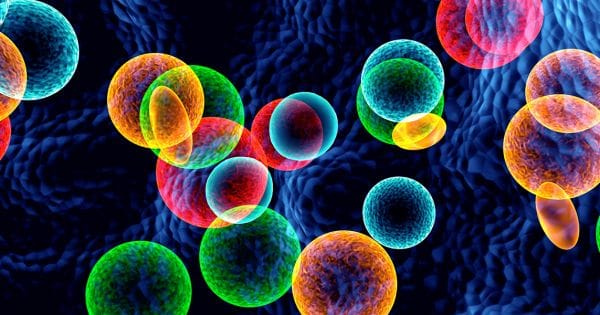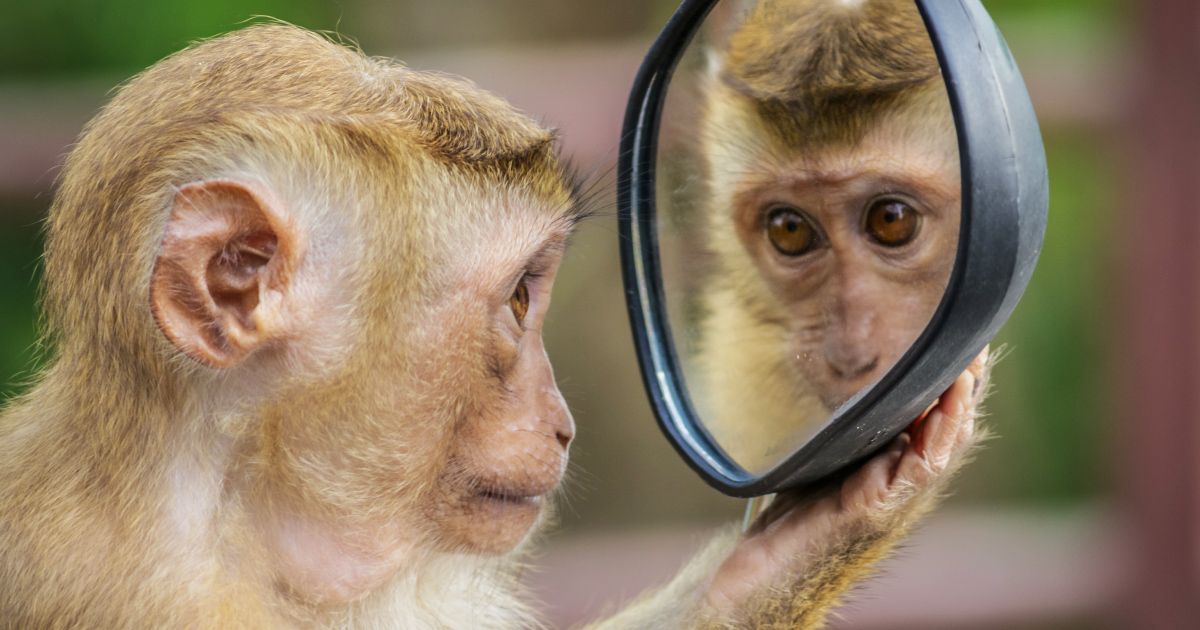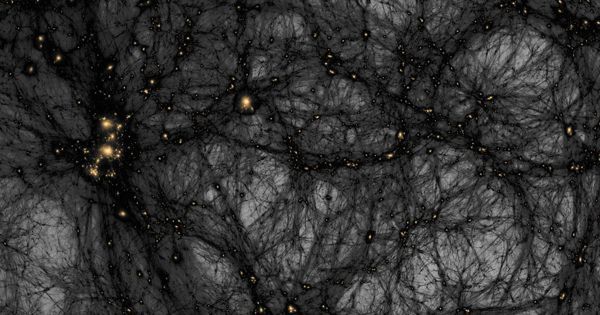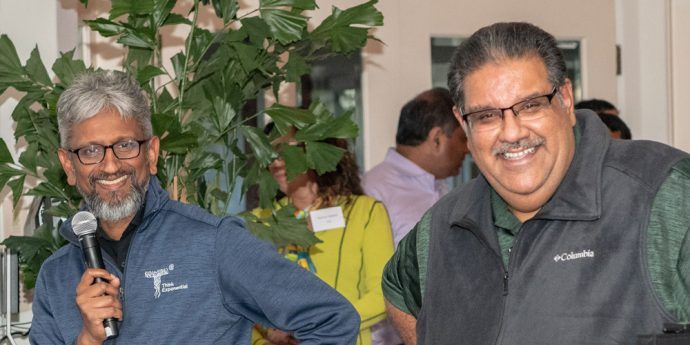Page 9606
Dec 13, 2018
Researchers Develop Nanodiscs That Can Wipe Out Tumors
Posted by Genevieve Klien in categories: biotech/medical, nanotechnology, robotics/AI
Cancer research is an area of medical science that, rightfully, gets considerable attention. There are nearly 14.5 million Americans with a history of cancer and with more than 13 million estimated new cancer cases each year. It’s no wonder even artificial intelligence (AI) has gotten into the field. Researchers from the University of Michigan are not getting left behind, with a groundbreaking method that has the potential to eliminate tumors.
This new technology uses nano-sized discs, about 10 nm to be exact, to teach the body to kill cancer cells. “We are basically educating the immune system with these nanodiscs so that immune cells can attack cancer cells in a personalized manner,” said James Moon from the University of Michigan.
Each of these ‘nanodiscs’ is full of neoantigens (tumor-specific mutations) that teach the immune system’s T-cells to recognize each neoantigen and kill them. These work hand-in-hand with immune checkpoint inhibitors that boost the responses of T-cells — forming an anti-cancer system in the body that wipes out tumors and potentially keeps them from reemerging.
Continue reading “Researchers Develop Nanodiscs That Can Wipe Out Tumors” »
Dec 13, 2018
Biologists shed new light on the diversity of natural selection
Posted by Xavier Rosseel in categories: genetics, sex
Evolutionary genetic theory shows that genetic variation can be maintained when selection favors different versions of the same genes in males and females—an inevitable outcome of having separate sexes. That is, for many genes, there may not be a universally ‘best’ version, but rather one is best for males and one is best for females. This is known as sexually antagonistic genetic variation, but it might only be maintained under a narrow set of conditions, limiting its prevalence in nature. However, a new study by Dr. Karl Grieshop and Professor Göran Arnqvist, published in PLoS Biology, may change this view.
“One of the simplest ways for sexually antagonistic selection to maintain genetic variation in fitness is via sex-specific dominance reversal, where neither version of a gene is always dominant or recessive, but rather the version that benefits a given sex is also dominant in that sex. So whether a given version of a gene is dominant or recessive to the other will depend upon which sex it is in,” says Dr. Karl Grieshop.
Dec 13, 2018
A ‘Self-Aware’ Fish Raises Doubts About a Cognitive Test
Posted by Xavier Rosseel in category: neuroscience
New test proposal… Do you experience stress, entropy, decoherence? Yes? Ofcourse you do. Well, I declare you self- aware 😁🙈.
A report that a fish can pass the “mirror test” for self-awareness reignites debates about how to define and measure that elusive quality.
Dec 13, 2018
Timechain : a Decade of Misunderstanding Blockchain
Posted by Steve Nichols in category: bitcoin
https://paper.li/e-1437691924#/
Abstract: The term “blockchain” has caused much confusion and damage due to its failure to accurately capture the core characteristics of decentralized byzantine fault tolerant systems. In this article, a restoration of an older term is proposed as replacement.
Dec 13, 2018
The end of GEO Satellites as we know today
Posted by Klaus Baldauf in categories: 3D printing, business, robotics/AI, satellites
GEO Satellites business globally make roughly 80% of the overall Space market business with $270B revenues claimed in 2017. How a Space Industry of such kind level of business can disappear is not an argument for many years to come but how a transformation of the Satellite configuration can impact the Space Industry this represents a real topic.
I already discussed in my previous article of how the advancement of A.I. bringing to autonomous missions for satellites, 3D printing permitting on-orbit Manufacturing and Robotic Assembly are not far away technologies, with the mature advancements achieved in on-Ground applications, to be applied to Space Satellites. Already today recently born Startups are working on Satellites on-board software/hardware permitting more autonomous tasks with decision making capability without being piloted from remote on-Ground Stations, significantly reducing operative costs.
Arriving to build fully autonomous Satellites is just a matter of time, with remotely controlled operations to be applied only for safety contingencies. The foreseen growth in the number of small satellites by order of magnitudes push the market this way.
Continue reading “The end of GEO Satellites as we know today” »
Dec 13, 2018
Fireball That Exploded Over Greenland Shook Earth, Triggering Seismic Sensors
Posted by Alberto Lao in category: space
WASHINGTON — When a blazing fireball from space exploded over Earth on July 25, scientists captured the first-ever seismic recordings of a meteor impact on ice in Greenland.
At approximately 8 p.m. local time on that day, residents of the town of Qaanaaq on Greenland’s northwestern coast reported seeing a bright light in the sky and feeling the ground shake as a meteor combusted over the nearby Thule Air Base.
But the fleeting event was detected by more than just human observers, according to unpublished research presented Dec. 12 here at the annual conference of the American Geophysical Union (AGU).
Continue reading “Fireball That Exploded Over Greenland Shook Earth, Triggering Seismic Sensors” »
Dec 13, 2018
This Ancient Galaxy Was Loaded With Dark Matter
Posted by Michael Lance in category: cosmology
Light that reaches Earth from this galaxy is 9 billion years old.
The light they analyzed was 9 billion years old.
Dec 13, 2018
New Intel Architectures and Technologies Target Expanded Market Opportunities
Posted by Klaus Baldauf in categories: computing, engineering
At Intel’s recent Architecture Day, Raja Koduri, Intel’s senior vice president of Core and Visual Computing, outlined a strategic shift for the company’s design and engineering model. This shift combines a series of foundational building blocks that leverage a world-class portfolio of technologies and intellectual property (IP) within the company.
Architecture Day Fact Sheet: New Intel Architectures and Technologies Target Expanded Market Opportunities
This approach is designed to allow Intel to drive an accelerated pace of innovation and leadership, and will be anchored across six strategic pillars:
Continue reading “New Intel Architectures and Technologies Target Expanded Market Opportunities” »
Dec 13, 2018
Indian academia is fighting a toxic mix of nationalism and pseudoscience
Posted by Derick Lee in category: transportation
It’s a problem that has many academics here worried. As India becomes increasingly polarised, coordinated efforts to popularise pseudoscientific theories, and to aggrandise the nation’s own scientific past, have begun to gain ground, they say. It’s a worrying mash-up of nationalism, religion, and scientific bunkum that appears to be an increasingly easy sell—and one that leaves the population both misinformed and perennially at odds with itself. “That is why our leaders and scientists talk about how evolution is wrong,” said Aniket Sule, an astrophysicist and colleague of Karandikar at HBCSE, “or how Indians were first to invent plane or atomic theory, or how cow worship is scientific.”
A wave of superstitions is being promoted as legitimate science.
















